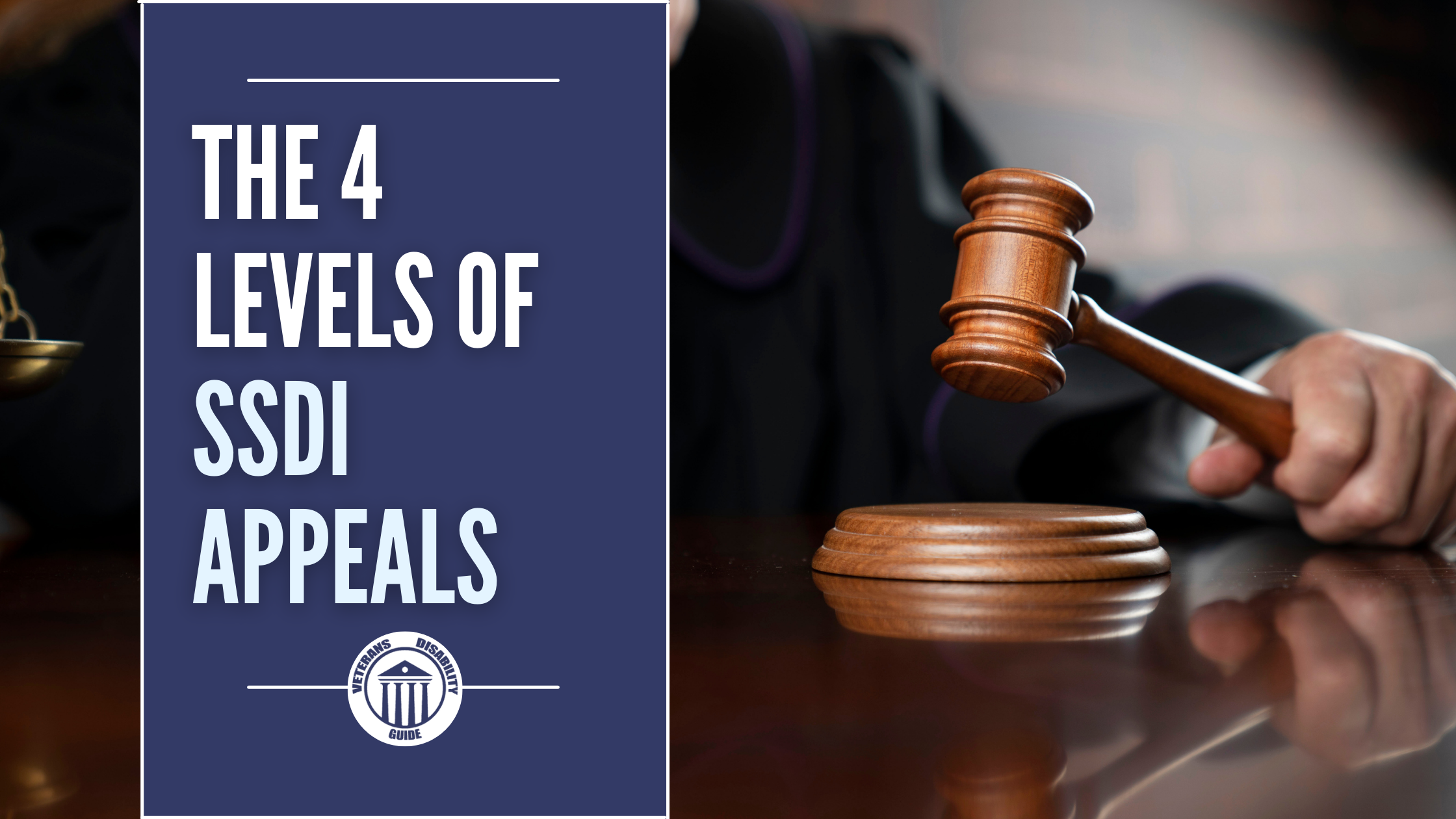
22 Mar The 4 Levels of the SSDI Appeal Process
If you are denied Social Security disability insurance (SSDI) benefits after an initial claim, you can, and should, appeal.
There are four stages to the appeals process, below we’ll break down what each step entails and the general timeline to expect.
Level 1: Request for Reconsideration
Following a denial on an initial claim, the first level of appeals is called reconsideration. If you would like to appeal, you must begin this step within 60 days of your denial.
At this level, your entire claim is reevaluated. This revaluation is done by a disability examiner and a medical consultant who did not participate in your first application review.
By having fresh eyes to look over your claim, this allows the Social Security Administration (SSA) to determine if there is anything the original examiners missed that could change the denial decision.
If you file a request for reconsideration, it takes an average of 6 months for a decision. (The most recent SSA time estimate as of January 2024)
To improve your chances of being approved at this stage, you can submit new evidence, such as medical exams and test results. Any new evidence submitted will be reviewed along with all of your original evidence.
Unfortunately, even with new evidence, it’s not likely that a claim is approved at this level.
At the reconsideration level, only 10-15% of reconsidered claims are approved.
If denied, the next step after reconsideration is a hearing.
Level 2: Administrative Law Judge (ALJ) Hearing
The ALJ hearing is the next stage of the process, if you want to appeal your denial at the reconsideration level.
Just like the reconsideration stage, you must start your appeal within 60 days of the denial.
Administrative Law Judges are federal judges that work for the SSA’s Office of Hearings Operations (OHO).
An ALJ will conduct your appeal hearing. Each judge is different, so the way they choose to conduct your hearing will depend on their own style.
Regardless of who is presiding over your case, at this stage, you will be defending your disability claim. The judge will expect you to present a well put together case and evidence, and expect you to answer any questions they may have.
Because of this, it is recommended, but not required, that you have a disability lawyer representing you for this stage. Your lawyer would assist with preparing you for your hearing to ensure you have the strongest case possible.
If you choose to have a hearing, getting a court date can take some time.
Per the SSA, in January 2024, the average wait time for a hearing was 9.6 months. The wait time can vary by state.
After you have your hearing, it will take an additional 1-3 months to get a decision on your case from the judge.
At the hearing level, your odds of being approved are around 50%. Some studies have shown that with legal representation, this number is closer to 60%.
If your hearing is denied, you would move to the appeals council.
Level 3: Appeals Council
Following a denial at the hearing level, you can submit your case to the Appeals Council. The 60 day rule applies to this stage as well.
The Appeals Council goes over each claim submitted and has the power to grant, or deny, the claim a review.
Essentially, the Appeals Council will be looking to determine if they disagree with the decision that the ALJ has made, or if there was any errors found with the hearing proceedings.
If they find that they agree with the ALJ decision, and there was no issue with the hearing, they’ll deny your request for a review.
If they find that they do not agree with the ALJ’s ruling, or that there was trouble with the hearing, they would opt to review your case.
With this review they can either
-Determine the outcome of your claim or
-Send your claim back to the ALJ for further review
The most common outcome for claims brought to the Appeals Council is a denial to review. The next most common outcome is having your claim sent back to an ALJ. On average 10% of claims are sent back to an ALJ -Your best chance of winning an appeal is at the ALJ stage, so this would be the ideal outcome.
If your case is denied, there is one final level of appeal available.
Level 4: Federal Court Review
The fourth, and final, stage of appeals is a federal court review.
At this stage, you would be filing a lawsuit in the U.S. District Court against Social Security.
While this stage is available to those who are denied a review by the Appeal Council, fewer than 1% of claimants actually do it.
The reasoning for this being
-Suing the SSA can be expensive and time consuming. If you have reached this stage, you have likely committed years to your appeal already.
-Many disability lawyers do not take appeals to the federal court level.
Can You Speed Up the Appeal Process?
If you’ve been keeping track,
the average estimated time for an SSDI appeal, from just the reconsideration to an ALJ hearing, is 16 months.
The 2024 total average time for an SSDI claim, from initial application, through the appeals, to a final decision, is 22 months.
Can you speed this up?
Generally, and unfortunately, not really.
To ensure that your claim is being processed through the appeal process as quickly as possible, you can make sure you stay on top of deadlines, paperwork, and contact with the SSA.
This can be done by
-Filing your appeals as soon as you can, rather than waiting until the end of the 60 day deadline.
-Filing your appeals correctly, making sure you are thorough with your paperwork so everything is submitted correctly the first time.
-Keeping up with any SSA requests. The administration may reach out to you during the appeals process to request information. In these situations, a timely response can help keep your claim progressing through their system.
Does Legal Representation Make a Difference?
It is not required that you have legal representation at any stage of your SSDI claim or appeal. However, having a disability lawyer has been proven to increase the changes of an approval.
Your lawyer would assist with maintaining deadlines for you, making sure that any necessary paperwork is completed correctly and submitted before the 60 day deadlines.
They would also be able to prep you for your ALJ hearing, and represent you when the time comes.
Looking for representation?
Victory Disability is a nationwide law firm. We specialize in helping disabled workers get the benefits that they have earned and deserve. There is no fee unless we win your claim. To see if we can assist you, take our free evaluation by clicking here.


